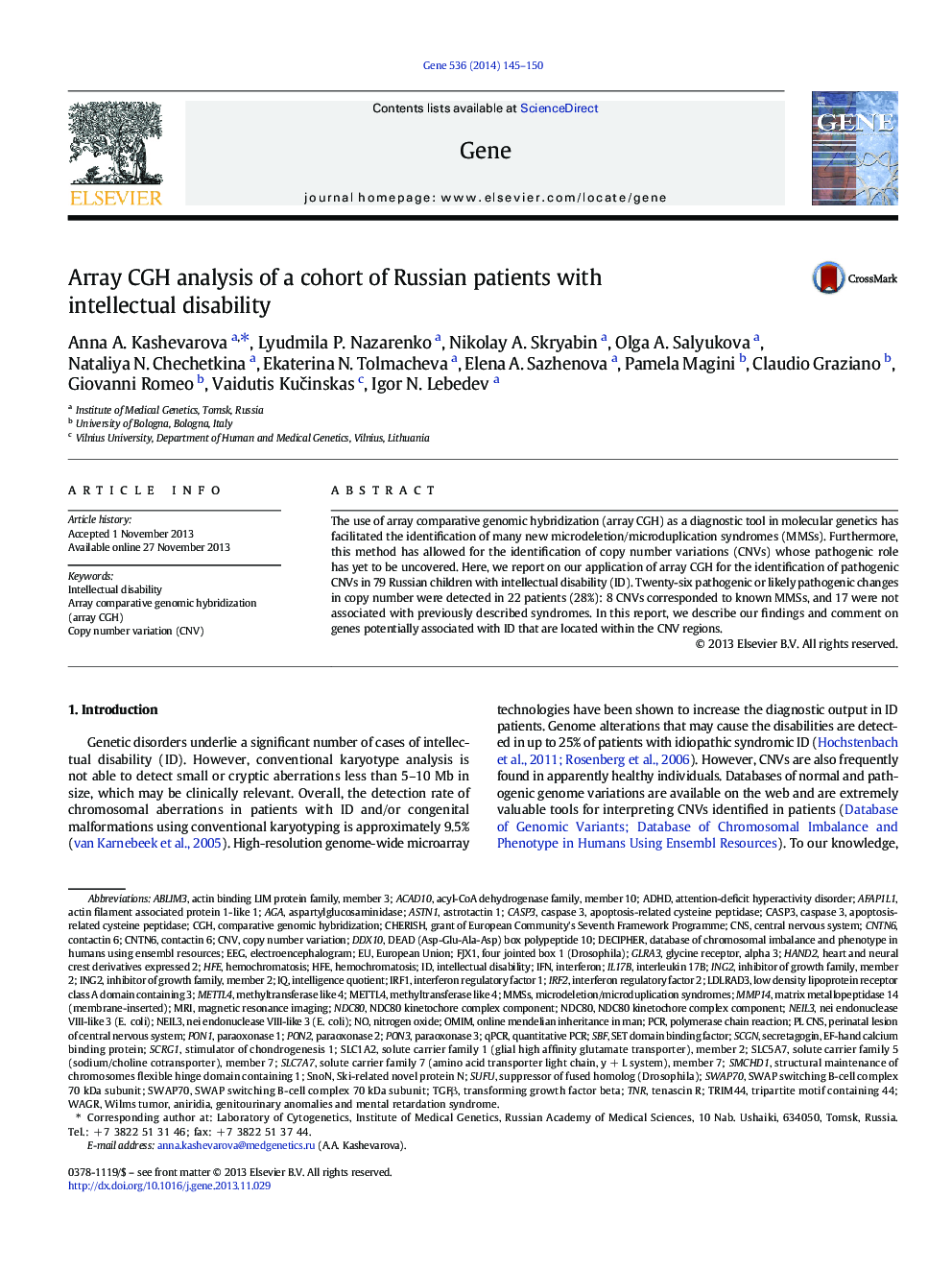| Article ID | Journal | Published Year | Pages | File Type |
|---|---|---|---|---|
| 2816637 | Gene | 2014 | 6 Pages |
•Array CGH confirmed balanced karyotype for 44% of patients with ID.•Nine percent of patients with idiopathic ID had CNVs associated with known syndromes.•We have described 17 new CNVs not associated with known syndromes.
The use of array comparative genomic hybridization (array CGH) as a diagnostic tool in molecular genetics has facilitated the identification of many new microdeletion/microduplication syndromes (MMSs). Furthermore, this method has allowed for the identification of copy number variations (CNVs) whose pathogenic role has yet to be uncovered. Here, we report on our application of array CGH for the identification of pathogenic CNVs in 79 Russian children with intellectual disability (ID). Twenty-six pathogenic or likely pathogenic changes in copy number were detected in 22 patients (28%): 8 CNVs corresponded to known MMSs, and 17 were not associated with previously described syndromes. In this report, we describe our findings and comment on genes potentially associated with ID that are located within the CNV regions.
